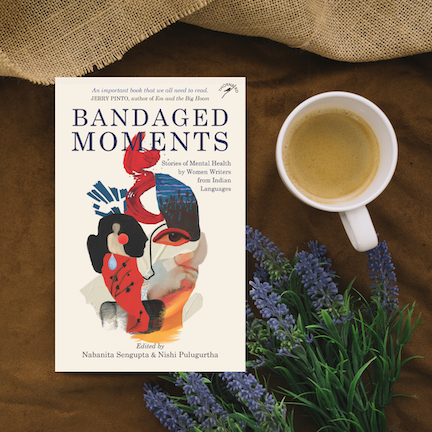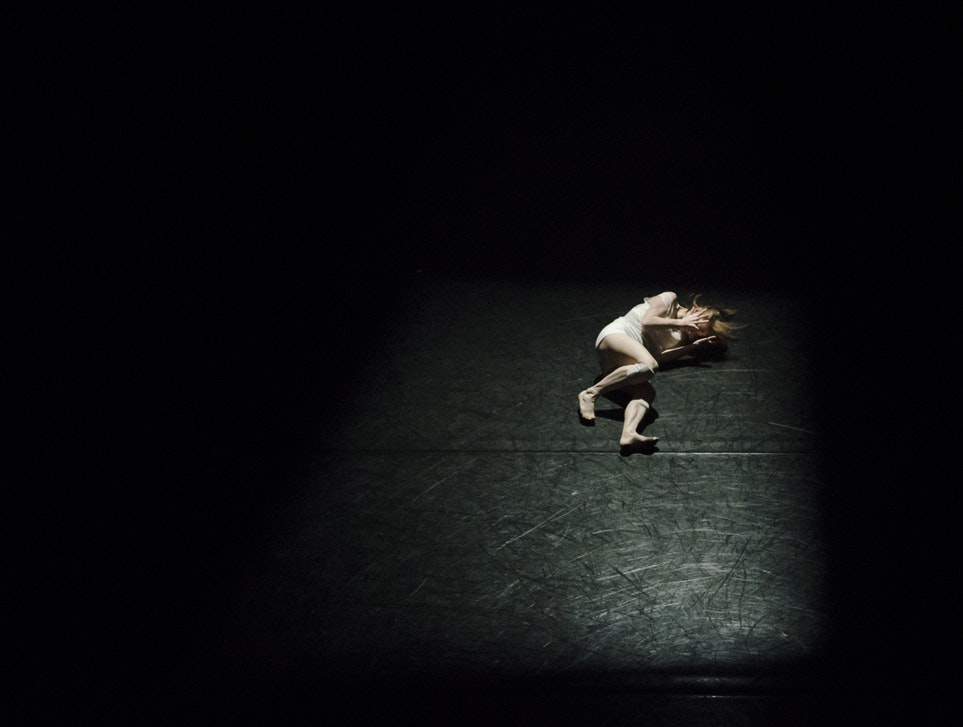Bandaged Moments: A New Book
Bandaged Moments is a collection of short stories of (and around) Mental Health by women writers across India. Edited by academics Nabanita Sengupta and Nishi Pulugurtha, this book features 26 stories translated into English from 17 languages.
It is a one-of-a-kind book, offering insight into many different Indias that perhaps don’t always get centre-stage. This is an important collection, even if some of the stories may seem jarring out of context. The stigma, domestic violence, the lack of awareness around mental illness and the potential for evidence-based treatment is often made all too tangibly real in this collection of stories.
Ahead of World Mental Health Day, The Health Collective is proud to present an excerpt from the book, with the permission of publishers Niyogi Books.
This is an excerpt from the story The Crazy River by Chirashree Indrasingh, translated from Odia by Narendranath Patnaik
THE CRAZY RIVER
… She could see a sheer kind of glee on his face, when he said, ‘No, Mother, it is not for you. I have bought these for me. I will wear them…’
A strange apprehension, some eerie suspicion, a mossy slippery feeling…
Some whispering gossip in the street now and then…
Kokila had always brushed away such impressions as rubbish. But today it dawned on her with a jolt…she could feel her dough coated fingers trembling. She tried to stand up, but her limbs failed.
That was the first episode. Later she noticed more signs, one after the other. Before anyone could come to know of it Kokila was sure since she had been watching him closely.
Kokila could sense that her son would no longer be allowed to stay in the house. Sudarshan’s father was a stout muscular man, with wide shoulders and strong arms. He used to play the role of Ravan or Mahiravan in the village Ramleela. When he came to know the fact, he wanted Sudarshan to leave the house on his own volition—he would not allow him to stay with them.
There were other dangerous possibilities too. Some unknown people might flock together in the village once they heard. They would come stealthily and take Sudarshan away with them and forcibly make him stay within their group. Sudarshan would be inclined to stay with them and forget her…
There was no end to Kokila’s misery. One after another, disasters followed. How could she protect her son? Several dangers were already chasing him.
That day Sudarshan got up from bed half asleep and hacked the fruit-laden moringa plant that his Pabana Uncle had planted. For no apparent reason…
The other day Pabana complained that Sudarshan was smoking bidis…As proof he brought the towel and a knife he had left at the place where he had been smoking. Sudarshan’s father thrashed the boy mercilessly. Kokila implored him not to punish the boy so hard. She cried, implored Pabana—who was younger to her to intervene, beat her head crying, and was beaten by her husband. No one came to her son’s rescue. His father beat him black and blue.
The thrashing had its effect for a few days. Sudarshan became very obedient and went to school on time. He spent his time studying late into the nights. Even stopped looking at bangles or kajal. But even before the fortnight came to an end, he did something very unusual!
It was evening. Ladies were returning in flocks from the temple. Suddenly Kamala grandma screamed. A big lump of soil had hit her ear and bits of it spread all over the place in her yard. All had seen it was Sudarshan who had crossed her house just then. Behind him, his mother Kokila too was returning after lighting the evening lamp in the temple.
Kamala Grandma’s residence was adjacent to the temple.
Kokila offered her apologies on behalf of her son, ‘Please excuse him. He is behaving very erratically these days. His mind is not stable.’
She cried a lot and prayed to the Goddess to cure her son’s state of mind. She offered a black sari to the Goddess and requested Kamala Grandma not to disclose this to her husband. She asked her to swear on her nephews. But the old hag did not keep her word. Sudarshan was punished ruthlessly again. The village Panch convened. The atmosphere in the house was tensed causing a lot of disruption—a lot of crying and uproar. Household chores remained undone.

Sudarshan’s tantrums did not stop…he continued to hit the hornet’s nest every now and then. A lean innocent boy, he appeared quite sober and gentle. But in a moment he could wreak havoc beyond imagination. As if he had been haunted, he would let loose someone’s cows, throw somebody’s utensils into the well, or at times he spoilt the saplings in a neighbour’s field. He brought the proof of his misdeeds with him—the dry mud from the field along with mashed saplings of brinjal or chili. His misdeeds crossed all limits when he set fire to the Biswal family’s sugarcane plantation.
The Biswal household had about half-an-acre of sugarcane plantation. Truck loads of sugarcane had already been transported to the nearest sugar factory for processing. Hemant Khatua, who sold sugarcane juice in the nearby market had repeatedly requested Mr Biswal to keep at least four bundles of sugarcane for him. This piece of land was hardly fifty yards away from Sudarshan’s house.
For his treatment, Sudarshan’s parents had consulted every possible mode from conjurors to country quacks, doctors, priests and the like. Medicines and rituals had been tested regularly on him. But the day he set fire to the crops, people started getting scared of him. No one could forgive him anymore.
He was quite oblivious to what he did. So his parents decided to keep him confined. How could anyone be always watchful of his misdeeds? The only alternative was to keep him locked inside a room.
Sudarshan was left to himself in the room. He remained so eerily calm that nobody could guess there was someone alive in that room. Kokila had arranged a tutor for him, who would try to teach him for a couple of hours a day. But the teacher stopped coming to teach even before completion of a month.
After a few days of silence, Sudarshan started abusing his mother and the villagers. He threw whatever utensils he could get hold of. One day his mother sobbed and complained that he had tried to disrobe her in a fit of anger.
Ultimately, he had to be kept chained. When he hurt his limbs from the chains, a rope tied to a pillar was fastened to his waist to replace the chains.
Sudarshan’s sister Saraswati was a beautiful girl. She had a healthy countenance and was very attractive. Since good proposals for her marriage kept pouring, Kokila had got her married early. When Saraswati’s in-laws came to know about the state of Sudarshan, they declared that they would never allow her to visit her parents.
For more of this story, do check out the book Bandaged Moments, published by Thornbird, an imprint of Niyogi Books.




